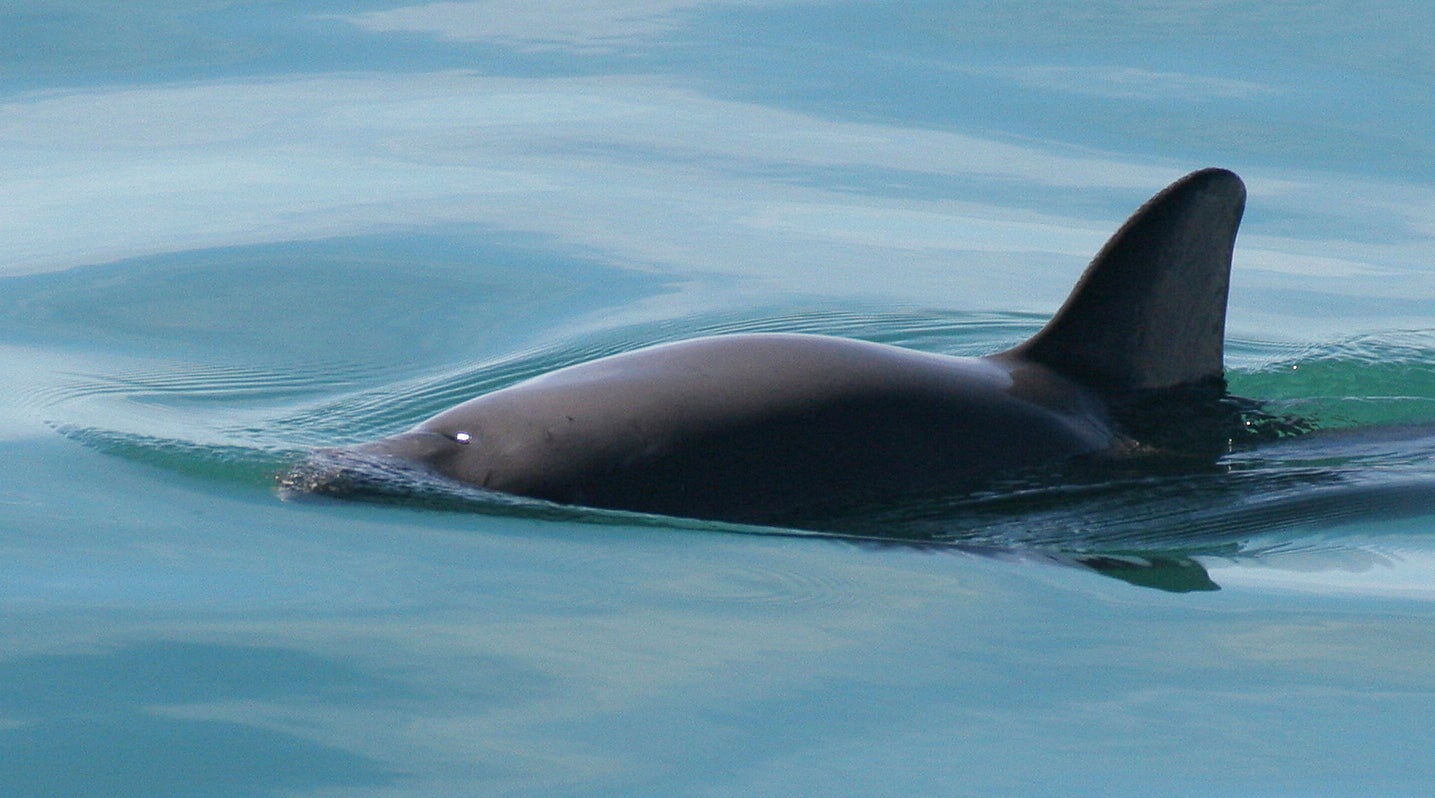Experts doubt Mexico's pledge to protect endangered porpoise
Mexico has announced a new program to protect the endangered vaquita marina porpoise, saying that has headed off trade sanctions by the international wildlife body CITES

Your support helps us to tell the story
From reproductive rights to climate change to Big Tech, The Independent is on the ground when the story is developing. Whether it's investigating the financials of Elon Musk's pro-Trump PAC or producing our latest documentary, 'The A Word', which shines a light on the American women fighting for reproductive rights, we know how important it is to parse out the facts from the messaging.
At such a critical moment in US history, we need reporters on the ground. Your donation allows us to keep sending journalists to speak to both sides of the story.
The Independent is trusted by Americans across the entire political spectrum. And unlike many other quality news outlets, we choose not to lock Americans out of our reporting and analysis with paywalls. We believe quality journalism should be available to everyone, paid for by those who can afford it.
Your support makes all the difference.Mexico's Environment Department announced a new program to protect the endangered vaquita marina porpoise Thursday, saying that has headed off trade sanctions by the international wildlife body CITES.
The department said seven steps will be taken, including controlling illegal gillnet fishing that can trap and kill the vaquita, which is the world's most endangered maine mammal.
But experts had misgivings, saying Mexico has failed to live up to previous promises to protect the vaquita and even gone back on some.
There are estimated to be as few as eight vaquitas left in the Gulf of California, also known as the Sea of Cortez, the only place it lives. The species cannot be captured, held or bred in captivity.
In late March, CITES called on its 184 member countries to stop trade with Mexico for products linked to sensitive species, such as orchids, cactuses and skins from crocodiles and snakes, as punishment for continued fishing in the vaquita protection zone in the upper Gulf of California.
The body said Thursday those sanctions had been dropped following the agreement with Mexico.
CITES — the Convention on International Trade in Endangered Species of Wild Fauna and Flora — regulates trade and protection for endangered species. Trade is permitted in some protected species, like crocodiles harvested for use in shoes or handbags, but such trade is closely regulated.
Alejandro Olivera, the Mexico representative for the Center for Biological Diversity, expressed skepticism over Mexico's announcement.
“The Mexican government has been promising this since it published a plan in September 2020. I don't know what the difference is going to be now,” he said.
Mexico has been slow to stop illegal gillnet fishing for totoaba, a fish whose swim bladder is considered a delicacy in China. The nets used to catch totaba also trap and drown vaquitas.
The Mexican government promised CITES it would control the approved landing and launching zones for fishing boats and ensure they do not intrude on the relatively small “exclusion zone" where the last vaquitas were seen.
Dozens of boats are still regularly seen fishing in the zone despite a program by Mexico's navy to sink concrete blocks in the area with hooks to snare illegal nets.
Olivera said that a GPS satellite monitoring system to track where boats go had been promised by officials but that the Mexican government had stopped paying for the service some time ago.
Experts have also said that the government often fails to post any regulatory or enforcement officers at docks and boat launch sites and that many fishermen launch their boats illegally from area beaches.
Mexico’s plan lists implementing “alternative fishing techniques” to gillnet fishing as a top priority, but experts note the government has promised to do that in the past but never paid for it. As a result, they say, private groups are struggling to supply alternative fishing gear that won't trap and drown vaquitas.
“There is still shrimp fishing with illegal nets, and the key points for launching and docking boats are still without inspectors,” Olivera said. “Right now, everything is on paper, and the vaquita is on the brink of extinction, so that all these measures should be implemented now, urgently.”
The government’s protection efforts have been uneven, at best, and also often face violent opposition from local fishermen.
President Andrés Manuel López's administration has largely declined to spend money to compensate fishermen for staying out of the vaquita refuge and to stop using gillnets.
The activist group Sea Shepherd, which has joined the Mexican navy in patrols to deter fishermen and help destroy gillnets, says the efforts have reduced gillnet fishing. But with so few vaquitas remaining, that may not be enough.